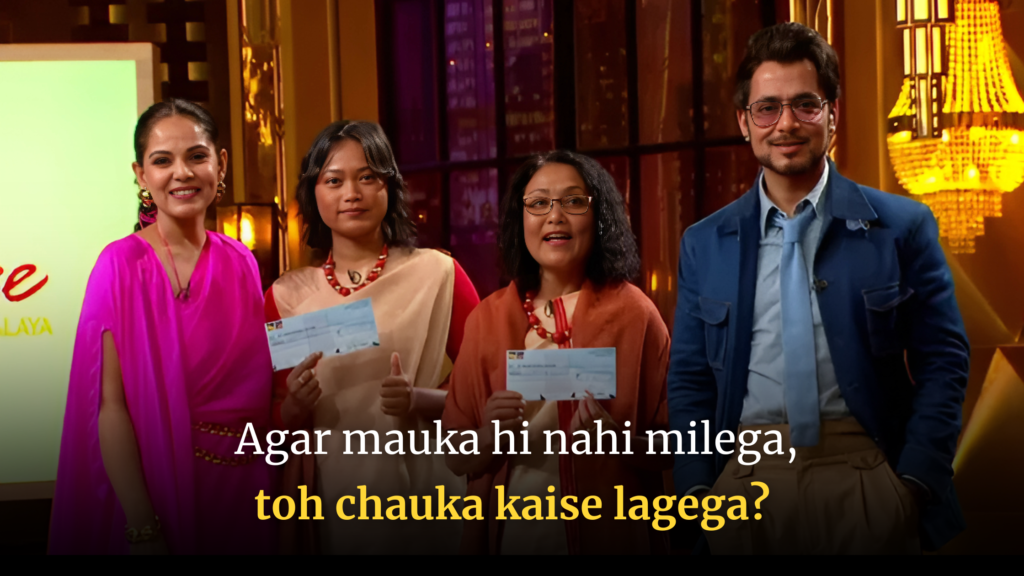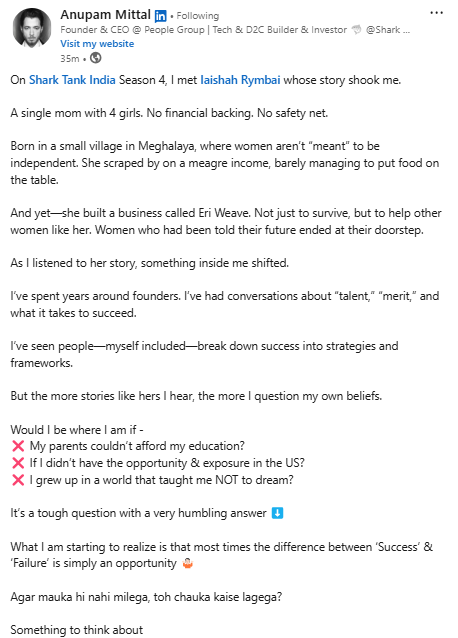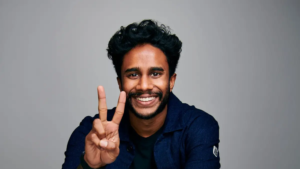“Agar mauka hi nahi milega, toh chauka kaise lagega?” Anupam

On Shark Tank India Season 4, Anupam Mittal met a woman whose story left a deep impact on him—Iaishah Rymbai, a single mother of four from Meghalaya. Born in a village where women were not expected to be independent, she faced immense challenges. With no financial backing, no safety net, and barely enough income to feed her family, she still dared to dream.
Iaishah didn’t just build a business for survival; she created EriWeave, an initiative to empower other women who, like her, were told that their future was limited. Listening to her story made Anupam question his own journey. He reflected on the privileges of education, opportunity, and exposure that shaped his success.
His key realization? The difference between success and failure often comes down to opportunity. If someone never gets a chance, how can they ever prove their potential? This powerful thought is a reminder of how important it is to create more opportunities for those who need them.
How EriWeave Started
The roots of EriWeave trace back to the ancient village of Iapngar in Meghalaya, where sericulture (silk farming) has been a long-standing tradition. Initially, Eri silk worms were primarily used for food, but in the 1970s, a visionary woman named Kristina Dris Lyngdoh Thaiang introduced the art of Eri Silk Spinning and Handloom Weaving to the community.
She passed down this skill to many, including Kong Prissila Rymbai, who later inspired Iaishah Rymbai—the founder of EriWeave. The turning point came in 2018 when an order for scarves was delayed due to a lack of yarn. This challenge made Iaishah realize the limited knowledge of spinning and weaving in her village. She took it upon herself to revive this dying art and create opportunities for other women.

EriWeave: A Movement of Empowerment
Iaishah collaborated with the Raid Iapngar Handloom Weaver Cooperative Society to launch EriWeave—not just as a brand, but as a movement. EriWeave now produces hand-spun Eri silk yarn using eco-friendly dyes from natural sources like turmeric, lac, leaves, and bark. The process is sustainable, ensuring minimal environmental impact while preserving traditional techniques.
Each piece of fabric tells a story—of resilience, heritage, and craftsmanship. The intricate patterns, rich motifs, and vibrant colors represent the creative spirit of the rural women who weave them.
Mission and Vision of EriWeave
Mission: To revitalize Eri silk, uphold handloom artistry, and preserve cultural heritage while empowering local artisans.
Vision: To create sustainable livelihoods and celebrate Meghalaya’s rich traditions, ensuring that the art of Eri silk weaving thrives for generations to come.
The Power of Opportunity
EriWeave is more than just a business—it’s a testament to the power of opportunity. When women like Iaishah are given the right platform, they don’t just succeed; they uplift entire communities. As Anupam Mittal rightly pointed out, if someone is never given a chance, how will they ever hit a six?
Agar mauka hi nahi milega, toh chauka kaise lagega?
EriWeave is proof that talent exists everywhere—it just needs the right opportunity to shine.







1 thought on ““Agar mauka hi nahi milega, toh chauka kaise lagega?” Anupam”